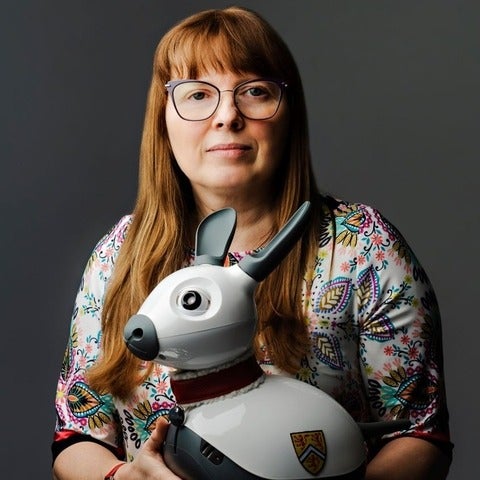Waterloo Engineering has the largest and most active robotics and automation research group in Canada, supporting Canada's largest robotics and automation cluster (via WaterlooEDC).
With over 45 faculty members solving problems in advanced robotics, autonomous systems, human-robot interaction, and related fields, Waterloo is where the future of robotics is being developed.
Our mission is to make significant advancements in robotics, from fundamental research through design and development to commercial applications including robots that build cars, explore space, deliver coffee, defuse land mines, or perform surgery.
For more details, check out the Robotics @ Waterloo page.
What's the RoboHub?
The Waterloo RoboHub is the home of robotics at the University of Waterloo, bringing together all of the related technical, educational, research, and other services and experience into one central group.
Visit the About the RoboHub section of the website for more details on our team, fleet, facilities, and research themes.
News
RoboHub Member News: Prof. George Shaker is an IEEE Sensors Council Distinguished Lecturer
Prof. George Shaker, a RoboHub Research Team member, is an IEEE Sensors Council Distinguished Lecturer for the 2025-2027 program.
RoboHub Member News: Prof. Kerstin Dautenhahn awarded $1.4 million
Prof. Kerstin Dautenhahn, a member of the RoboHub Research Team, has been awarded $1.4 million as the new Tier 1 NSERC Canadian Research Chair in Socially Intelligent Robotics.
RoboHub Manager gives Invited Talk at IEEE Humanoids Workshop in South Korea
Our very own Brandon DeHart, RoboHub Manager and Adjunct Assistant Professor of Electrical & Computer Engineering, has been invited to give a talk as part of a workshop at the IEEE Humanoids Conference in Seoul, South Korea.
Building on his work with the IEEE Humanoids Study Group to pull together the report on the state of standards and safety for humanoid robots, titled "A Pathway Study for Future Humanoids Standards" and available via https://doi.org/10.13140/RG.2.2.27892.21122, Brandon was invited to give a talk as part of a workshop on the topic at the IEEE Humanoids Conference this year.









